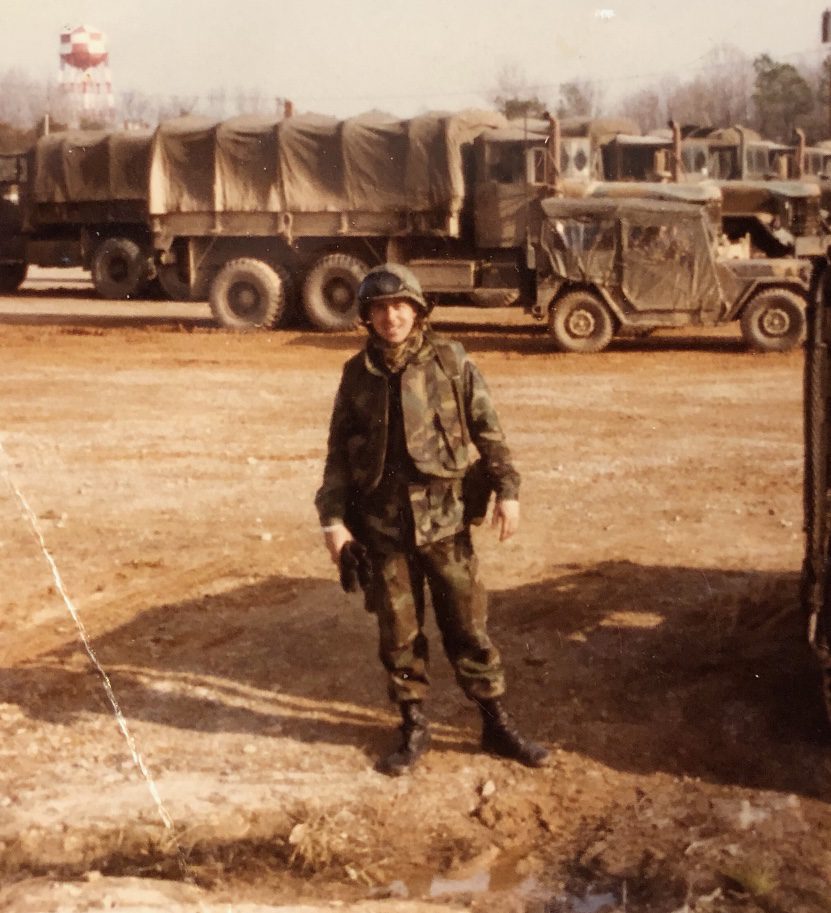LYNN — Thirty-nine years ago, Bradley J. Campus made the ultimate sacrifice. Campus was killed in the Beirut barracks bombing on Oct. 23, 1983 — a disastrous event that killed 241 American service members. On that day, two suicide bombers detonated two truck bombs that hit the U.S. Marines Corps barracks in Beirut, Lebanon, which housed hundreds of U.S. and French military members, making it the deadliest single-day attack against U.S. Marines since the 1945 battle of Iwo Jima.
After news of the bombings spread, the first reports about Campus (who was 21 at the time) were that he was missing. A few days later, his body was found.
A Lynn Classical graduate, his memory and legacy lives on as his family and friends remember his kindness and humor, his desire to open his own bakery, and his pride in being a United States Marine.
Campus’ older sister Brenda Haskell, 64, said she can still remember the pain of waiting for news while her brother was missing.
“It was days later before they came and told us they found his body,” she said. “It was hardest on my mother. It was tough for me and my sister but for her, she just couldn’t function because of not knowing.”
Haskell also remembers her brother’s funeral, the church, the procession, and the gun salute like it was yesterday, still in disbelief that he has been gone for 39 years.
“At this point, you think about how he could have been a grandfather with his own grandchildren by now and things that could’ve happened but didn’t,” she said. “It’s like how could this happen? He was just a sweet, funny little boy.”
While in the service, Campus sent letters back home to his family, telling them how hard boot camp was but that he was hanging in there and making friends.
“He really liked it,” Haskell said. “Brad found a place in the Marines and he was proud to be a Marine.”
As the youngest and only boy of three, Haskell said she remembers her brother being a little spoiled, getting out of having to shovel, hang laundry, and other chores that she and her sister were asked to do.
She remembers him saving up money to buy a moped that she would beg him to borrow, having to bribe him with gas money.
“He rode that thing around everywhere,” she said.
She remembers how he loved to be outside, playing until the street lights came on, and how he had a lot of friends who he loved to hang out with.
Brian Hurley was one of those friends, sharing numerous hobbies with Campus including fishing, watching movies, going to concerts, and socializing.
He remembers Campus as an intelligent and driven guy who was independent, growing up in a single-mother household with not a lot of money. Hurley remembers Campus’s first job at the Wendy’s on Boston Street, before he left to work in a bakery and as a cook at Denny’s.
“His dream really was to open a bakery in the North End,” Hurley said. “It would’ve been wonderful. He’d have to compete with those cannoli guys there.”
When Hurley first met Campus, he said he was a small, scrawny kid with curly hair, but when he returned from basic training, he had short hair, was muscular, and was a much more serious guy.
When he heard that Campus was missing after the bombings, Hurley said it was a “pretty big punch in the face.”
“It was a tough time,” he said. “Brad was very well respected and loved.”
Years after his friend’s death, one of Campus’s friends from the Marines came and talked with Hurley and some others about how generous Campus was and how he was a “great” Marine and a “good guy.”
Another fellow Marine from Lynn, Darryl Bradley Sr., didn’t know Campus, but met his mother years after his death when visiting the Massachusetts Beirut memorial in Boston. Bradley also served in Beirut, but left in May of 1983 when Campus’ battalion came to relieve him.
Bradley was at Camp Lejeune on “Air Alert,” or standby, when the bombing happened. He recalled the night of the bombing, hearing banging on the doors before being told that the barracks were hit, destroying the “huge,” four-story buildings.
Bradley’s battalion arrived in Beirut the next day, hiking from the airport and turning a corner to see the location of the former barracks completely leveled.
“It was just skeletal remains of the first floor and the ceiling, but that was about it. Everything else just came crashing down,” Bradley said.
Reflecting on his experience in the marines and being on the site where hundreds of his innocent brothers were killed, Bradley said he hopes people remember them and “everything that they sacrificed and that their families sacrificed as well.”
To continue to honor and remember Campus, one of his friends and fellow marines Charlie Griffin — who escorted Campus’ body home from the airport and was as at the funeral — is planning to host a rededication next year for the 40th anniversary of his death. Griffin has also begun working on improving the memorial for Campus at Clark Street Playground, replacing the current plywood with Campus’s name on it with a more detailed, granite stone.
“I want to use that as an educational thing… They’ll look at the stone and they’ll see information about Brad and how he was killed… you don’t want to forget that somebody made the ultimate sacrifice like that,” Griffin said. “So it’s not just some young Lynn kid who died, but it tells where it happened, why it happened and different things like that.”
Griffin wears a remembrance bracelet in honor of Campus every day and will continue to do so as he remembers and honors his dear friend and the sacrifice he made while serving our country — “Semper Fi.”
Allysha Dunnigan can be reached at [email protected].

